
RLC-REVUE DE LITTERATURE COMPAREE
metrics 2024
Exploring the Depths of Literary Diversity
Introduction
RLC-REVUE DE LITTERATURE COMPAREE, published by DIDIER-ERUDITION, is a prominent French journal focused on comparative literature and literary theory, holding an ISSN of 0035-1466. Established in 2001, the journal aims to foster scholarly exchange and critical analysis in the field of literature, examining texts across cultures and disciplines. With its current categorization in the Q4 quartile for literature and literary theory as of 2023 and holding a Scopus rank of #880 out of 1106, RLC remains an accessible resource for researchers, professionals, and students alike. While it operates under a traditional access model, it continuously strives to contribute to the academic discourse within its scope, enhancing the understanding of literary complexities and intercultural exchanges. Based in the heart of Paris, at 6 RUE DE LA SORBONNE, the journal invites contributions that explore innovative perspectives and methodologies in literary studies through its ongoing commitment to scholarly excellence.
Metrics 2024
 0.10
0.10 -
- 0.10
0.10 4
4Metrics History
Rank 2024
Scopus
JCI (Web Of Science)
Quartile History
Similar Journals
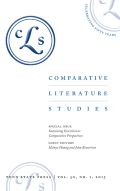
COMPARATIVE LITERATURE STUDIES
Unveiling New Perspectives in Comparative LiteratureComparative Literature Studies is a distinguished journal published by Penn State University Press, focusing on the diverse and evolving field of comparative literature. With an ISSN of 0010-4132 and an E-ISSN of 1528-4212, this quarterly journal has been a critical platform for scholarly dialogue and interdisciplinary research since its inception in 2000. The journal proudly ranks in the Q3 category for Cultural Studies and Q2 for Literature and Literary Theory (2023), showcasing its significant impact within these domains. Notably, it ranks #214/1106 in Literature and Literary Theory according to Scopus, placing it in the 80th percentile—highlighting its relevance and quality in the global academic landscape. Despite its traditional subscription model, the journal remains a crucial resource for researchers, professionals, and students keen on exploring the intersections of cultures, texts, and histories. By publishing cutting-edge research and critical essays, Comparative Literature Studies aims to expand the horizons of literary analysis and foster innovative scholarly exchanges.
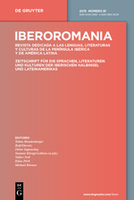
IBEROROMANIA
Exploring the Depths of Romance Linguistics and LiteratureIBEROROMANIA, published by WALTER DE GRUYTER GMBH, stands as a pivotal journal in the fields of Linguistics and Language and Literature and Literary Theory. Since its inception in 1969, IBEROROMANIA has facilitated scholarly discourse by providing a platform for cutting-edge research that explores the complexities of Romance languages and their literatures. The journal is recognized for its valuable contributions, currently holding a Q3 quartile ranking in Linguistics and Language and a Q2 ranking in Literature and Literary Theory as of 2023. With its diverse scope spanning several years, including works from 1970 to 2024, IBEROROMANIA is pivotal for researchers, professionals, and students alike, fostering a deeper understanding of Romantic linguistic and literary frameworks. Although it does not provide open access, its impact in the Arts and Humanities is underscored by its Scopus rankings, reflecting a commitment to high-quality scholarship. For those dedicated to exploring the nuances of Romance languages and literature, IBEROROMANIA is an indispensable resource.
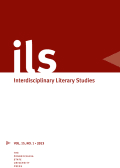
Interdisciplinary Literary Studies
Bridging Diverse Perspectives in Literary StudiesInterdisciplinary Literary Studies is a prominent journal published by Penn State University Press that delves into the rich and diverse field of literature and literary theory. Established to foster scholarly dialogues, this journal embraces an interdisciplinary approach, making it a valuable resource for researchers, practitioners, and students interested in the multifaceted dimensions of literature. With an ISSN of 1524-8429 and an E-ISSN of 2161-427X, the journal operates without open access, reflecting its commitment to maintaining rigorous academic standards. The journal is ranked in the Q3 quartile of literature and literary theory for 2023 and holds a Scopus rank of #730 out of 1106, placing it in the 33rd percentile, which further emphasizes its emerging stature within the academic community. Spanning converged years from 2017 to 2024, Interdisciplinary Literary Studies continues to impact the dialogue within the humanities, encouraging nuanced analyses and interdisciplinary connections that push the boundaries of literary scholarship. Set in the United States, the journal is dedicated to exploring contemporary and historical texts, critical theories, and diverse literary forms, making it an essential publication for anyone passionate about the evolving landscape of literature.

Revista de Letras
Cultivating Intellectual Engagement Across BordersRevista de Letras is an esteemed academic journal published by Universidade Estadual Paulista (UNESP), dedicated to the fields of Literature and Literary Theory, as well as Philosophy. With its ISSN 0101-3505 and E-ISSN 1981-7886, the journal serves as a significant platform for the dissemination of scholarly research and critical thought, particularly within the Brazilian context and beyond. Operating from Araraquara, SP, Brazil, the journal spans the period from 2004 to 2023, featuring a diverse array of articles aiming to explore various literary and philosophical discourses. Despite its current Q4 ranking in both the Literature and Literary Theory and Philosophy categories, the journal continues to foster a vibrant academic community, promoting rigorous scholarship and intellectual engagement. Researchers, professionals, and students alike are invited to contribute to and engage with the evolving narratives presented in this publication, aiming to enhance understanding and facilitate discussions within these crucial fields.
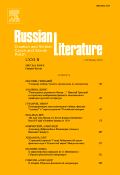
RUSSIAN LITERATURE
Illuminating the Rich Tapestry of Russian Literary TraditionsRUSSIAN LITERATURE is a premier academic journal published by ELSEVIER, dedicated to advancing the study of Russian literary traditions, critical theory, and cultural contexts. With an ISSN of 0304-3479 and an E-ISSN of 1878-3678, this journal has firmly established itself as a vital resource in the field, achieving a commendable Q1 ranking in Literature and Literary Theory as of 2023. The journal benefits from a strong impact factor and ranks #178 out of 1106 in the Scopus database, placing it in the 83rd percentile of arts and humanities research. RUSSIAN LITERATURE covers an extensive timeline, converging years from 1971 to 1974 and from 1976 to 2023, reflecting its rich academic lineage. Although not an open-access publication, the journal remains influential among scholars, professionals, and students seeking in-depth analyses and critical insights into Russian literature and literary theory. Its commitment to scholarly rigor makes it an essential read for anyone engaging with the complexities of literary studies.

TWENTIETH CENTURY LITERATURE
Advancing Scholarship in Modern Literary MovementsTWENTIETH CENTURY LITERATURE is a renowned journal published by Hofstra University Press, dedicated to the exploration and analysis of literature and literary theory from the twentieth century. With a focus on both established and emerging voices in the field, this journal serves as an essential resource for researchers, professionals, and students who seek to deepen their understanding of significant literary movements and trends. The journal holds an impressive Q2 category ranking in Literature and Literary Theory as of 2023, showcasing its impact and relevance in the academic community. Though not an open access journal, it provides valuable insights and scholarly discussions that contribute to ongoing debates in literature studies. Covering a converged period from 2002 to 2014 and continuing from 2016 to 2024, TWENTIETH CENTURY LITERATURE positions itself as a pivotal platform for thought-provoking literature critique and scholarly inquiry, making it an indispensable addition to any academic library or personal collection.
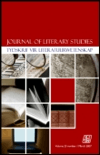
Journal of Literary Studies
Illuminating the landscape of contemporary literary studies.Journal of Literary Studies, published by UNISA PRESS, is a premier open access journal dedicated to advancing the field of literature and literary theory. With its ISSN 0256-4718 and E-ISSN 1753-5387, the journal has established itself as a leading platform for innovative research since its inception in 1985, with a notable convergence period running through to 2024. Recognized in the Q1 quartile of literature and literary theory, the journal ranks impressively at #236 out of 1106 in its category according to Scopus, highlighting its impact in the arts and humanities with a percentile rank of 78th. The journal's open access model, adopted in 2022, reflects its commitment to accessibility and dissemination of knowledge globally, making it an essential resource for researchers, academics, and students alike. With an editorial focus on interdisciplinary approaches and contemporary critical discourse, the Journal of Literary Studies serves as a vital vessel for the exchange of ideas and scholarly dialogue in the intricate landscape of literary studies.
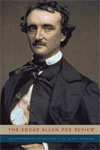
Edgar Allan Poe Review
Delving into the Complexities of Poe's WorksEdgar Allan Poe Review, published by Penn State University Press, is a distinguished academic journal dedicated to the exploration and critical analysis of the works and legacy of Edgar Allan Poe. With an ISSN of 2150-0428 and an E-ISSN of 2166-2932, this journal has established itself as an essential resource for scholars in the fields of Literature and Literary Theory. Recognized in 2023 with a Q3 ranking in its category, the journal occupies a significant place within the academic landscape, reflecting its commitment to advanced research and discourse related to one of America's most iconic literary figures. Although currently not open access, the journal encourages submissions that contribute to the understanding of Poe's influence on literature and culture from 2017 to 2023 and beyond. The Edgar Allan Poe Review strives to foster scholarly exchanges and supports a wide audience of researchers, professionals, and students in their quest to unlock the complexities of Poe's works.

AKZENTE-ZEITSCHRIFT FUR LITERATUR
Illuminating Literary Discourse Since InceptionAKZENTE-ZEITSCHRIFT FUR LITERATUR is a distinguished journal in the field of literature and literary theory, published by Carl Hanser Verlag, a revered name in German publishing. Operating from Germany, the journal has contributed significantly to literary discourse since its inception. With an ISSN of 0002-3957, AKZENTE has established itself within the scholarly community, despite its coverage in Scopus being discontinued since 2020. It currently holds a Q3 quartile ranking in Literature and Literary Theory for 2023, reflecting a solid position among its peers. Although classified as non-open access, the journal serves as a vital platform for researchers, professionals, and students interested in deepening their understanding of literary analysis and theory. The thoughtful selection of scholarly articles and critical essays featured in AKZENTE not only fosters intellectual exchange but also promotes the exploration of contemporary and historical literary topics, making it an essential resource for those dedicated to the study of literature.
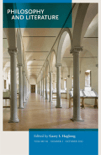
PHILOSOPHY AND LITERATURE
Unraveling the Threads of Philosophy through Literature.PHILOSOPHY AND LITERATURE is a distinguished journal published by Johns Hopkins University Press, dedicated to exploring the intricate relationships between philosophical inquiry and literary expression. With an ISSN of 0190-0013 and an E-ISSN of 1086-329X, this journal has established itself as a noteworthy platform for scholars in the fields of literature and literary theory, as well as philosophy, inviting a diverse array of critical perspectives. Since its inception, the journal has evolved, with the most recent converged years extending from 2002 to 2024. It currently holds a Q3 ranking in Literature and Literary Theory and a Q4 in Philosophy for the year 2023, reflecting its commitment to academic rigor and scholarly contribution. Although it does not offer open access, it remains an essential resource for researchers, professionals, and students eager to engage with thought-provoking discussions and analyses. With its unique focus on the interplay between narrative and philosophical paradigms, PHILOSOPHY AND LITERATURE continues to be instrumental for those looking to deepen their understanding of the human experience through the lenses of both literary art and philosophical thought.